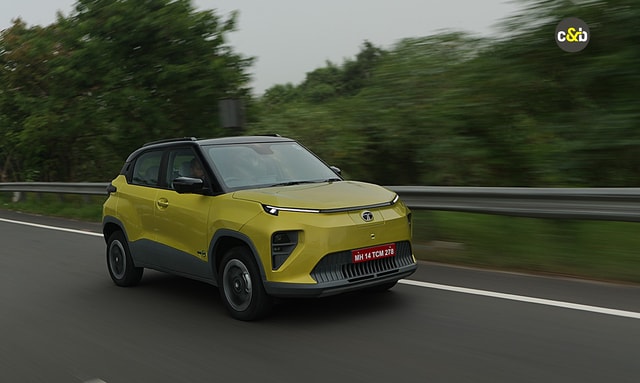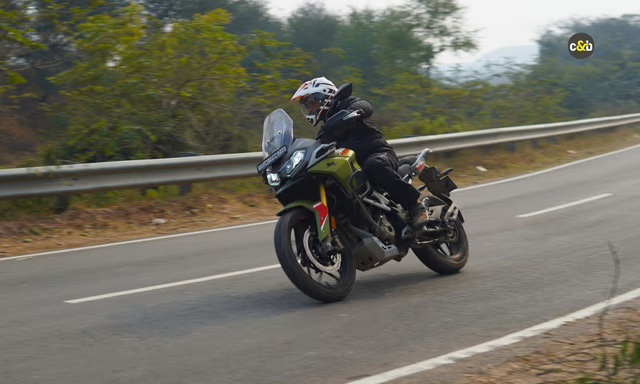Volkswagen Takes Aim At Tesla With Own European Gigafactories

Volkswagen plans to build half a dozen battery cell plants in Europe and expand infrastructure for charging electric vehicles globally, accelerating efforts to overtake Tesla and speed up mass adoption of battery-powered cars. The world's No. 2 carmaker, which is in the midst of a major shift towards battery-powered cars, said on Monday it wants to have six battery cell factories operating in Europe by 2030, which it will build alone or with partners.
"Our transformation will be fast, it will be unprecedented," Chief Executive Herbert Diess told Volkswagen's Power Day, which also featured the CEOs of BP, Enel and Iberdrola in an effort to match some of the buzz of Tesla's Battery Day last September.
"E-mobility has become core business for us," he added.
Volkswagen, whose shares rose as much as 3.8%, did not specifically say how much the plan will cost. It said in December that it planned to spend 35 billion euros ($41.7 billion) on e-mobility as a whole by 2025.

The Volkswagen ID.3 is currently on sale in Europe
The group had been a laggard on electrification until it admitted in 2015 to cheating on U.S. diesel emissions tests and had to deal with new Chinese quotas for electric vehicles. It now has one of the most ambitious programmes in the industry.
Volkswagen said the European factories will have a joint production capacity of up to 240 gigawatt hours (GWh) a year, adding the first 40 GWh would come from Sweden's Northvolt, with production starting in 2023.
As part of the deal, Volkswagen will raise its 20% stake in Northvolt and also take over the Swedish firm's stake in a planned battery cell venture in the German city of Salzgitter, which will form the second factory from 2025.
This will be followed by a factory in Spain, France or Portugal in 2026 and a site in Poland, Slovakia or the Czech Republic by 2027. Two more plants will be set up by 2030.
While the first two factories are already reflected in Volkswagen's financial planning, the group is currently in "deep discussions" about how the subsequent plants fitted with financial targets, board member Thomas Schmall said.
Volkswagen is also working on a major expansion of charging infrastructure, a lack of which is still seen as a big barrier to the mass adoption of battery-powered cars. Via existing efforts and partnerships with oil major BP as well as top European utilities Enel and Iberdrola, Volkswagen aims to operate about 18,000 public fast-charging points in Europe by 2025.
This represents a five-fold expansion of the existing fast-charging network, Volkswagen said, adding it would invest 400 million euros in the initiative.

Volkswagen is also working on a major expansion of charging infrastructure
In North America, Volkswagen targets 3,500 fast-charging points by the end of 2021 via its Electrify America unit, while in China, the world's largest car market, the group aims for 17,000 by 2025.
In China, where Volkswagen last year acquired 26.5 per cent of battery maker Guoxuan High-tech Co Ltd, the carmaker now aims to sell more than 2 million electric vehicles a year by the end of the decade.
Shifting to design, Volkswagen unveiled plans to have a new unified prismatic battery cell from 2023, which will support cost cuts generated by the higher level of in-house cell production and could impact its current suppliers.
South Korean battery makers' shares, including in LG Chem, whose unit LG Energy Solution makes batteries for Volkswagen, and SK Innovation, fell as much as 5.8% and 5.3% respectively on Tuesday after the news.
Electric vehicle makers, including Tesla, are using cylindrical battery cells, which resemble flashlight batteries and are relatively inexpensive and easy to manufacture.
Prismatic cells, which resemble a thin hardcover book, are housed in a rectangular metal case and are more expensive. Pouch cells, another alternative, are thinner and lighter, and resemble a flexible metal mailing envelope.
"On average, we will drive down the cost of battery systems to significantly below 100 euros ($119) per kilowatt hour," Schmall said. "This will finally make e-mobility affordable and the dominant drive technology."
(This story has not been edited by NDTV staff and is auto-generated from a syndicated feed.)
Latest News
 car&bike Team | Mar 3, 2026Ducati Desmo450 MX Teased Ahead of India LaunchThe Ducati Desmo450 MX is expected to be launched in India soon, as early as sometime later in March 2026.1 min read
car&bike Team | Mar 3, 2026Ducati Desmo450 MX Teased Ahead of India LaunchThe Ducati Desmo450 MX is expected to be launched in India soon, as early as sometime later in March 2026.1 min read car&bike Team | Mar 3, 2026Is this the Vida VXZ Electric Motorcycle?A test mule of an almost production-ready electric motorcycle has led to speculation that it could be the upcoming Vida VXZ electric motorcycle.2 mins read
car&bike Team | Mar 3, 2026Is this the Vida VXZ Electric Motorcycle?A test mule of an almost production-ready electric motorcycle has led to speculation that it could be the upcoming Vida VXZ electric motorcycle.2 mins read Shams Raza Naqvi | Mar 3, 2026Vinfast Unveils Two New Ultra Luxury Models, Restructures Brand LinesThe Vietnamese car company has announced that its vehicles will fall in three brand lines with Lac Hong being the luxury brand.1 min read
Shams Raza Naqvi | Mar 3, 2026Vinfast Unveils Two New Ultra Luxury Models, Restructures Brand LinesThe Vietnamese car company has announced that its vehicles will fall in three brand lines with Lac Hong being the luxury brand.1 min read car&bike Team | Mar 3, 2026Raptee.HV T30 Electric Motorcycle Deliveries BeginThe Chennai-based start-up Raptee.HV has begun large-scale customer deliveries of the brand’s first electric motorcycle – the Raptee T30.1 min read
car&bike Team | Mar 3, 2026Raptee.HV T30 Electric Motorcycle Deliveries BeginThe Chennai-based start-up Raptee.HV has begun large-scale customer deliveries of the brand’s first electric motorcycle – the Raptee T30.1 min read Shams Raza Naqvi | Mar 3, 2026From Vitara Brezza To Brezza: Maruti’s Subcompact SUV Completes A Decade In The MarketThe SUV has seen a major switch from being just a Diesel model to being just a Petrol in the last few years.2 mins read
Shams Raza Naqvi | Mar 3, 2026From Vitara Brezza To Brezza: Maruti’s Subcompact SUV Completes A Decade In The MarketThe SUV has seen a major switch from being just a Diesel model to being just a Petrol in the last few years.2 mins read car&bike Team | Mar 2, 2026Yezdi Roadster Red Wolf Launched at Rs 2.10 LakhYezdi has expanded the Roadster line-up with a new Red Wolf colourway, now the most premium shade in the range.1 min read
car&bike Team | Mar 2, 2026Yezdi Roadster Red Wolf Launched at Rs 2.10 LakhYezdi has expanded the Roadster line-up with a new Red Wolf colourway, now the most premium shade in the range.1 min read
 Bilal Firfiray | Feb 28, 2026Tata Punch EV Facelift Review: More Range, More Sense, Less MoneyThe Tata Punch EV facelift gets a bigger 40 kWh battery, faster 60 kW DC charging, improved thermal management, and better real-world range, and all of that at a lower introductory price. But does it become a more complete package now?6 mins read
Bilal Firfiray | Feb 28, 2026Tata Punch EV Facelift Review: More Range, More Sense, Less MoneyThe Tata Punch EV facelift gets a bigger 40 kWh battery, faster 60 kW DC charging, improved thermal management, and better real-world range, and all of that at a lower introductory price. But does it become a more complete package now?6 mins read Preetam Bora | Feb 24, 2026Hero Destini 110 Review: Simplicity, RefinedThe Hero Destini 110 is a no-nonsense commuter that is simple, comfortable and above all, fuel efficient. In 2026, when buyers are spoilt for choice, is it good enough to consider?1 min read
Preetam Bora | Feb 24, 2026Hero Destini 110 Review: Simplicity, RefinedThe Hero Destini 110 is a no-nonsense commuter that is simple, comfortable and above all, fuel efficient. In 2026, when buyers are spoilt for choice, is it good enough to consider?1 min read Preetam Bora | Feb 23, 2026TVS Apache RTX Road Test Review: Redefining the Entry-Level ADVAfter spending some time with the TVS Apache RTX in traffic, the daily commute, as well as on open highways, one thing becomes clear: the RTX is trying to redefine the entry-level ADV segment. But is it without fault?1 min read
Preetam Bora | Feb 23, 2026TVS Apache RTX Road Test Review: Redefining the Entry-Level ADVAfter spending some time with the TVS Apache RTX in traffic, the daily commute, as well as on open highways, one thing becomes clear: the RTX is trying to redefine the entry-level ADV segment. But is it without fault?1 min read Girish Karkera | Feb 20, 2026Road Test: 2025 VinFast VF7 AWD Sky InfinityFlagship all-electric SUV from the Vietnamese car maker gets most of the basics right.1 min read
Girish Karkera | Feb 20, 2026Road Test: 2025 VinFast VF7 AWD Sky InfinityFlagship all-electric SUV from the Vietnamese car maker gets most of the basics right.1 min read Jaiveer Mehra | Feb 18, 2026New BMW X3 30 Vs Mercedes-Benz GLC 300: Midsize Luxury SUV FaceoffWith the new X3 30, BMW has a direct competitor to the petrol GLC 300, but which is the luxury SUV for you?1 min read
Jaiveer Mehra | Feb 18, 2026New BMW X3 30 Vs Mercedes-Benz GLC 300: Midsize Luxury SUV FaceoffWith the new X3 30, BMW has a direct competitor to the petrol GLC 300, but which is the luxury SUV for you?1 min read




























































































































